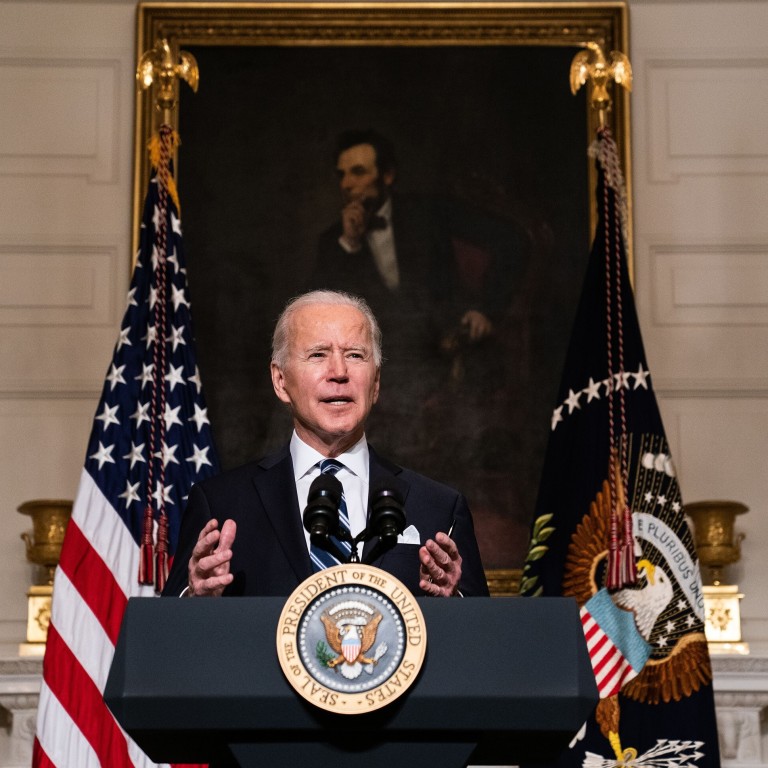
Analysis | Myanmar coup set to test US role as defender of democracy, say analysts
- Immediate fresh sanctions could completely cut off what limited influence the US has in Myanmar, pushing the country further into China’s embrace
- But that does not mean the seasoned diplomats on Biden’s team are completely out of options to shape events in the country, say observers
The diplomatic observers, however, underscored that Biden is far from lacking in leverage and wherewithal to put pressure on Senior General Min Aung Hlaing and others behind the coup to reinstate democracy and free those who have been detained.
On the contrary, with seasoned Myanmar hands such as National Security Adviser Jake Sullivan and the National Security Council’s Asia point man Kurt Campbell advising him – along with sanction powers granted to him by the Magnitsky Act – the new president has “significant ability” to make his disapproval known, the analysts said.
Still, administration officials are likely to advise Biden to proceed gingerly for now as they also have an eye on America’s ongoing strategic competition with Beijing.
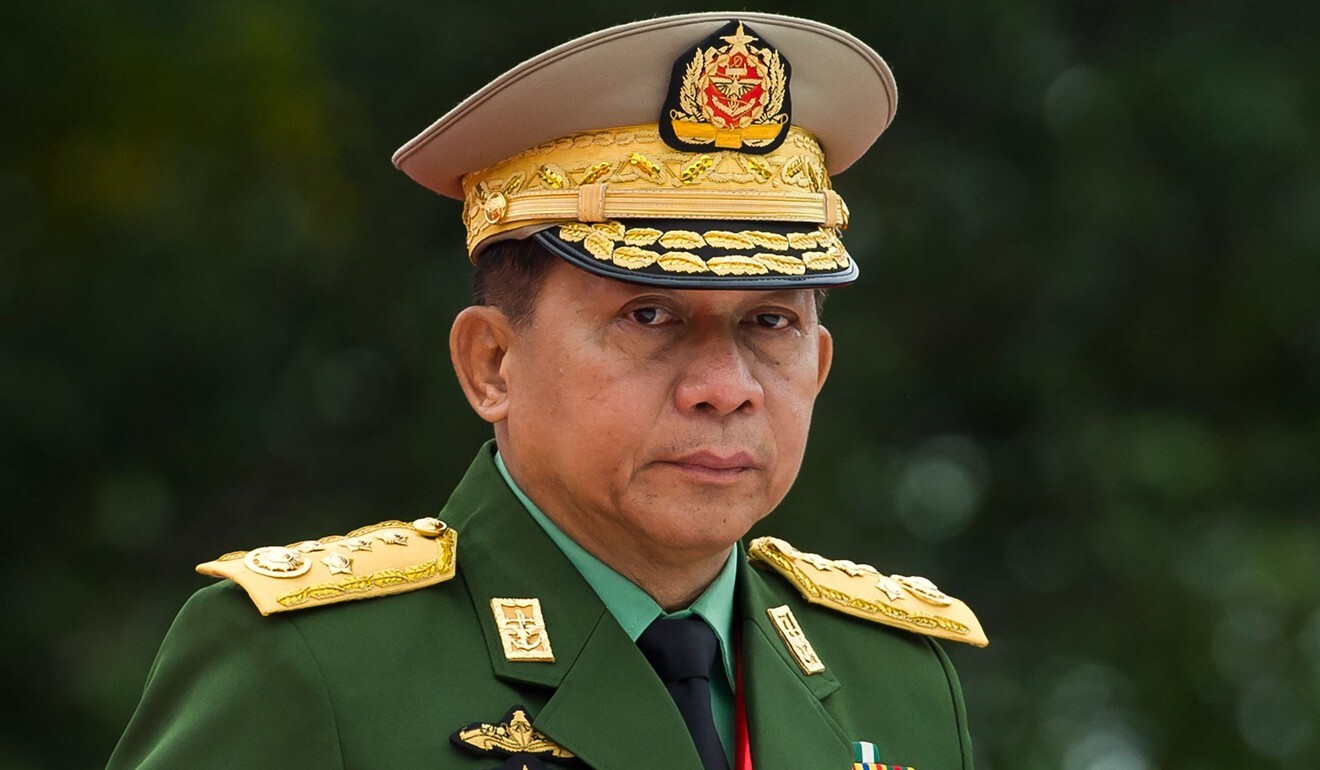
Such action, however, appeared to be firmly on the table on Tuesday as the State Department said it considered the military takeover a coup, paving the way for a review of foreign assistance to the Southeast Asian country.
Latest available data from the US Agency for International Development showed Myanmar received US$216 million in American aid in 2019.
Speaking to This Week in Asia before the State Department’s Tuesday announcement, Canberra-based Southeast Asian politics scholar Hunter Marston said Biden’s initial reaction signalled officials had not made up their minds about imposing fresh sanctions.
And Anthony Nelson, the Washington-based senior director of the East Asia and Pacific practice at the Albright Stonebridge consultancy, said the president’s statement on Monday was a “strong start” that would hearten regional democracy advocates, though “the Tatmadaw is used to international condemnation, clearly planned this thoroughly, and will not be easily moved”.
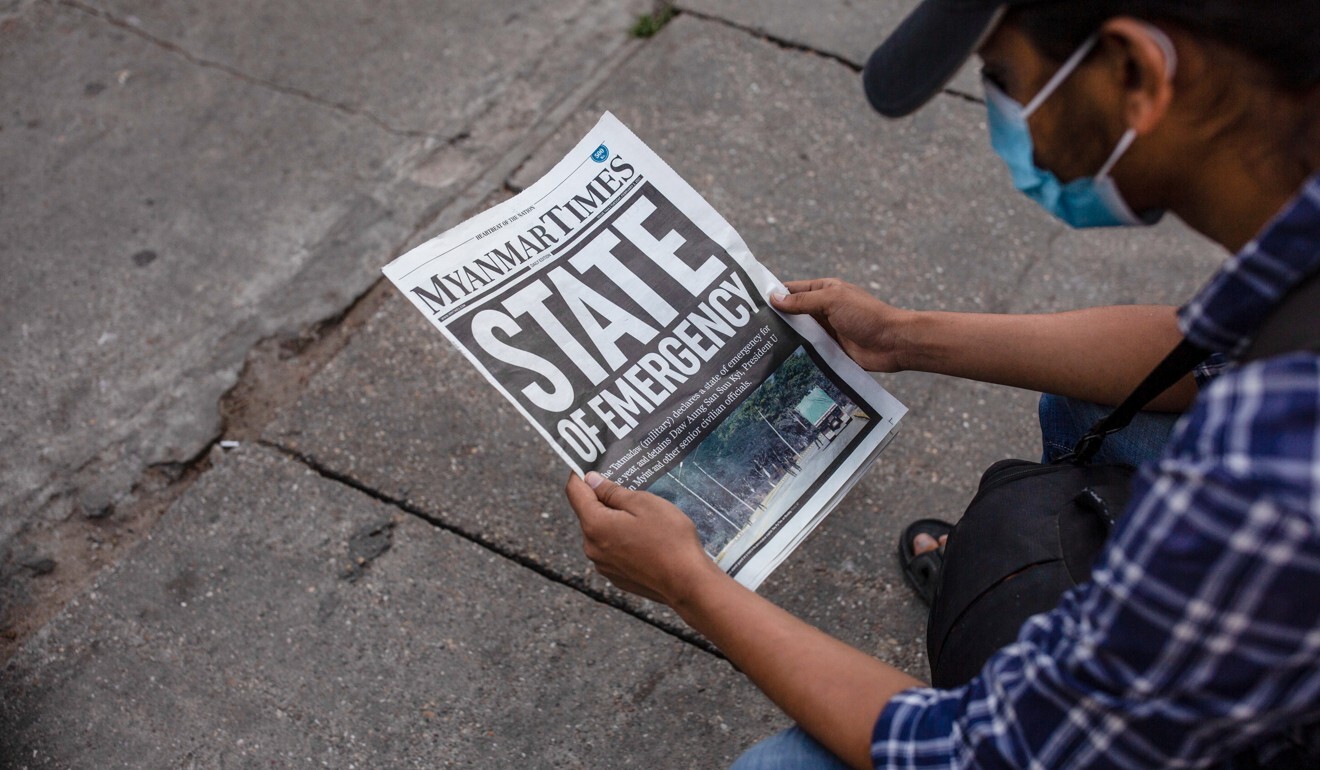
He said the US removed the sanctions “based on progress toward democracy”, but “the reversal of that progress will necessitate an immediate review of our sanction laws and authorities, followed by appropriate action” .
“The United States will stand up for democracy wherever it is under attack,” the president added.
“Not immediately doing so, however, gives the administration more options, as it may try to use the threat of wider sanctions as leverage against the generals,” Marston said.
Agreeing to that sentiment was veteran US-based Myanmar expert Suzanne DiMaggio, who said “knee-jerk reimposition of sanctions during a pandemic should be resisted while diplomatic outreach gets under way”.
Myanmar coup: political instability on the cards, and a test for Biden
“Pressing for the release of those detained and initiating talks aimed at getting the military to step back should be the priority,” said DiMaggio, a senior fellow at the Carnegie Endowment for International Peace.
The behind-the-scenes coaxing, an effort in which the likes of Campbell and Sullivan were involved, is credited by observers as having played a part in the-then ruling generals’ willingness to embrace reform and democracy.
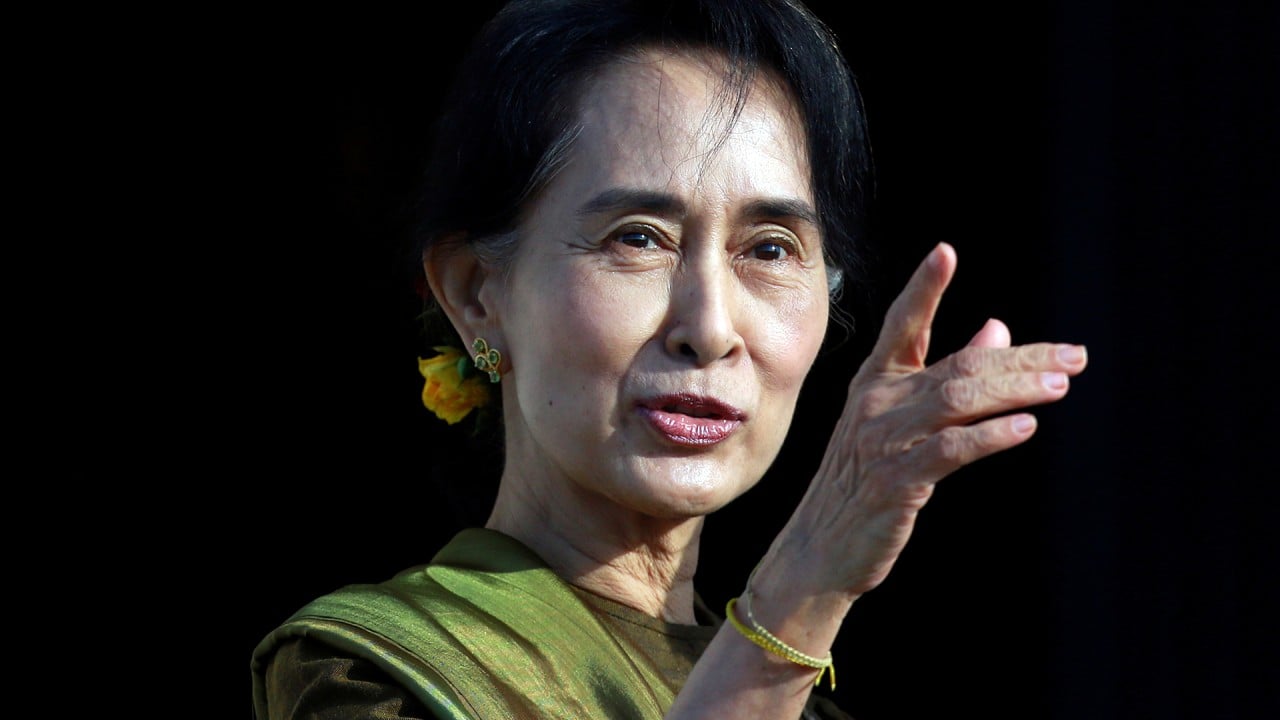
01:20
Myanmar’s army declares state of emergency after leader Aung San Suu Kyi detained during raid
The army on Monday said it seized power due to “electoral discrepancies” and has said it will hold fresh polls before handing power over to the victor.
In seizing power, the army cited the constitutional right of the military chief to govern under a state of emergency for a one-year period if there were “acts or attempts to take over the sovereignty of the [country] by wrongful forcible means” that could lead to a disintegration of national solidarity.
The challenge now is for Biden to weigh keeping communication lines open with Min Aung Hlaing, given that shutting him out is seen as ultimately benefiting China – the Tatmadaw’s most important strategic partner and arms supplier.
The crisis is a major challenge to the Biden administration, which has emphasised that US values of democracy and human rights will figure prominently in its foreign policies
“The crisis is a major challenge to the Biden administration, which has emphasised that US values of democracy and human rights will figure prominently in its foreign policies,” Marston said. “We will see how skilfully Biden’s team can balance these values with its geostrategic interests,” he added, referring to the US-China competition for influence. “Wider sanctions will obviously limit US influence in that competition.”
Peter Mumford, the Southeast Asia practice head for the Eurasia Group political risk consultancy, suggested that the question of whether the West should impose sanctions must be weighed against the new realities in Myanmar as compared to the country of a decade ago.
“It is now much more reliant on trade and investment ties with China, Japan and [Association of Southeast Asian Nations] countries, all of which are unlikely to take harsh punitive steps against the Tatmadaw,” Mumford said.
That said, the Biden administration’s and other Western governments’ calculations about imposing sanctions will also have to take into account domestic political considerations, Mumford said.
Comments by Walter Lohman, director of the Asian Studies Centre at the Republican-backing Heritage Foundation US think tank, offered some insight on the thinking among Biden’s ideological opponents who have long felt Obama was too dovish on the Myanmar generals.
In a note to the media, Lohman said the US “should now look to reimpose sanctions lifted or waived beginning with the Obama administration”.
Biden calls for Myanmar’s military to relinquish power immediately
“There was always an argument that they were being lifted faster and more broadly than reforms on the ground in Burma justified, and Heritage analysts said so for 10 years. The coup bears out this judgment,” Lohman said.
Mitch McConnell, the Senate Republican leader, on Tuesday said he hoped the Biden administration would “impose significant costs on the [Myanmar] military for its attack on democracy”.
Mumford, the Singapore-based political risk consultant, said such calls for immediate new sanctions will “increase further if there is widespread social unrest in Myanmar and a brutal crackdown by the military”.
But barring the use of sanctions, what are the options available to Biden?
Marston, the Australia-based scholar, said the influence of Campbell and Sullivan should not be underestimated.
“Kurt Campbell in particular as commissioner for Indo-Pacific affairs, has a wealth of Asia experience and expertise to guide his decisions in the coming weeks,” Marston said.
“Many of the figures in Myanmar’s government whom Campbell worked with during the Obama administration’s ‘opening to Burma’ remain in influential advisory roles and can help facilitate direct lines of communication with senior military leaders behind the scenes,” the researcher said.
He added: “While many of the leadership positions have changed in the last six years, many influential actors will be willing to listen to Campbell and Sullivan based on trust built in the difficult years of Myanmar’s transition in 2010-2012, which those two worked on closely with key reformers in [the country’s capital of] Naypyidaw.”
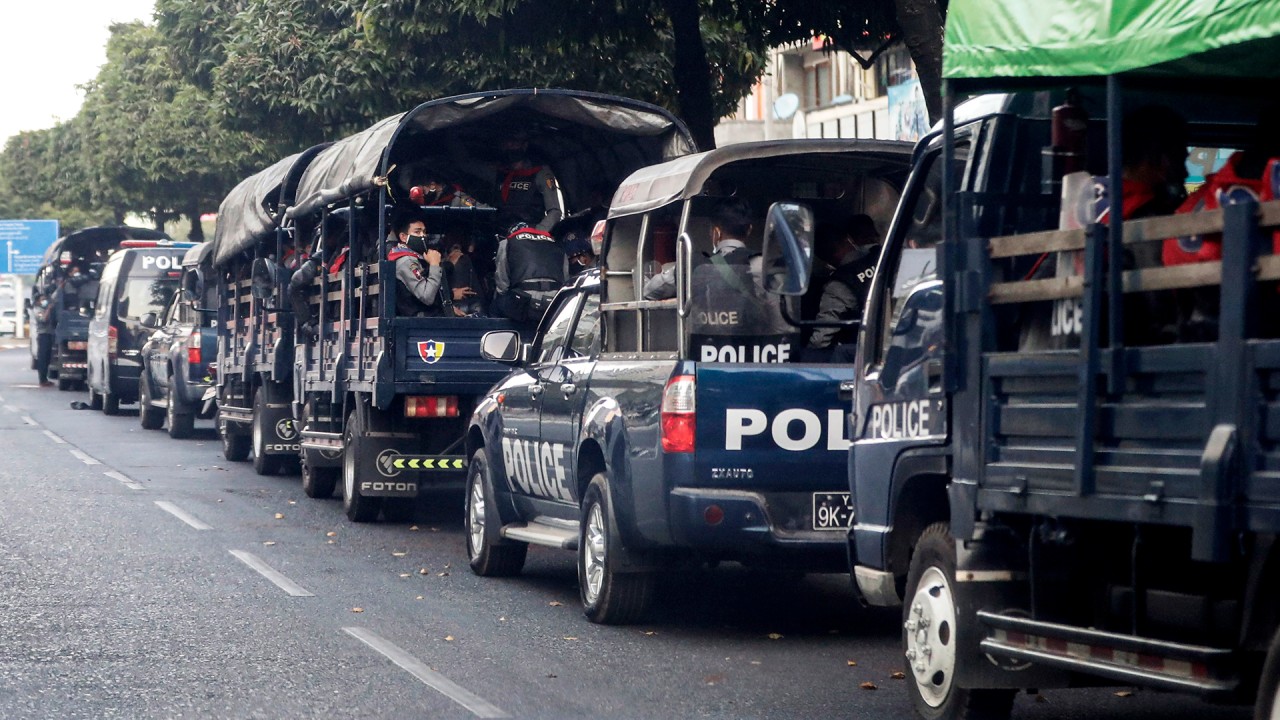
04:08
'Worst nightmare': violence feared after Myanmar military coup
Campbell also received a vote of confidence from Bilahari Kausikan, the respected former Singaporean senior diplomat.
Writing in Nikkei Asian Review, Bilahari said Biden would do well to listen to his Indo-Pacific tsar’s counsel. “[Campbell] is aware of the futility of isolating Myanmar – two decades of sanctions did nothing to change the Tatmadaw’s behaviour – and the continuing, indeed, even greater validity of the strategic considerations given the enhanced competition with China,” Bilahari wrote.
Brunei, the current Asean chair, released a four-paragraph statement on behalf of the 10 countries that invoked the bloc’s commitment to democracy, rule of law, good governance and the protection of human rights. The statement called for the “pursuance of dialogue, reconciliation and the return to normalcy” for the sake of the Myanmar people.
The governments of Singapore, the Philippines and Indonesia issued separate statements expressing “concern” over the coup and called for all sides to show restraint.
“The US will likely attempt to leverage the support of allies and Asean to pressure Myanmar more strongly,” said Nelson of the Albright Stonebridge Group. “But given Asean’s institutional norms around non-interference in internal affairs, and the limited impact of US business on the country’s economy, they will have to be creative.”

